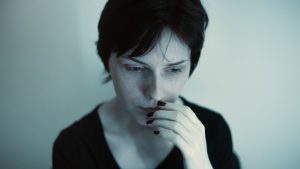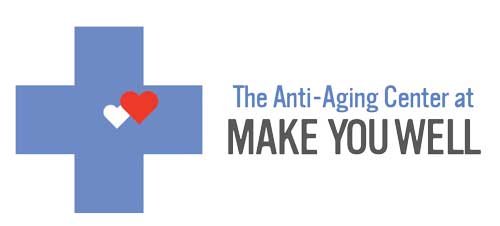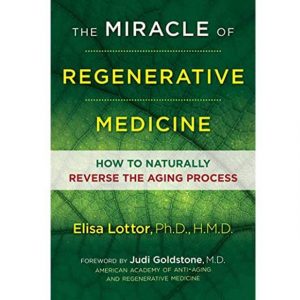Anxiety And Panic Disorders
View or Anxiety FAQs here!To learn more about how Dr. Goldstone can help with your anxiety or panic disorder please call the office to schedule a free consultation today. Dr. Goldstone understands the seriousness of anxiety and mood alterations and how they can interfere with your happiness and life. She has the wisdom and utilizes the most cutting edge solutions to help manage this serious issue.

Anxiety Treatment Los Angeles
WHAT IS ANXIETY?
Anxiety is an emotion everyone feels at times; it is associated with worry, stress or panic. It is common to get anxious before taking a test, making an important decision, or going to see a doctor. Feelings of anxiety in such contexts are typically temporary and brief. An anxiety disorder, however, presents with much more severe and persistent feelings of worry, fear, and stress. These feelings are so powerful that they not only interfere with daily activities and relationships, but manifest with (often severe) physical symptoms. More than 3 million people are treated each year for a wide array of anxiety disorders. Anxiety disorder is the most common mood disorders among both children and adults.
At Southern California Center for Anti-Aging, one of our goals is to help you manage excessive stress and anxiety by teaching ways to self-soothe and control your psychological balance. Dr. Goldstone employs meditation, breathing techniques, nutrition, detoxification and exercise along with balancing your body chemically to help you reach a state of mental stability and health. She follows you regularly to be sure you are keeping up with the program and achieving success. She is well aware of the body-mind connection, and always approaches you as a whole person. For this reason, her treatment methods are designed to improve your mental, as well as your physical health.
Feelings of anxiety or panic without an apparent or reasonable cause can be very troubling and frightening. Although anxiety and panic disorders can occur for different reasons, when hormones are out of balance uncomfortable symptoms related to anxiety can develop. Some of these symptoms are: worry, intense fear, agitation, irritability, nervousness, irrational thoughts, and fear of losing control. These symptoms can be accompanied by a number of physical signs, including fight or flight reactions such as: pounding heart, palpitations rapid heart rate, shortness of breath, nausea, hot or cold flashes, pain, numb hands and feet, sweating, lightheadedness, shakiness, choking sensation, increased blood pressure and muscle tension.
CAN HORMONE THERAPY IN LOS ANGELES HELP WITH ANXIETY TREATMENT?
Hormonal changes such as those in menopause or andropause have been associated with every sign and symptom discussed above. There is an increase in anxiety and frequency of panic attacks during PMS, post-childbirth, perimenopause and menopause and andropause. Women with low progesterone levels and men with low testosterone are prone to anxiety. Estrogen helps to stimulate the production and transportation of serotonin around the body, and prevents its break down. Therefore, when estrogen levels are low serotonin is low and an unstable mood and anxiety can develop. The balance and interaction of hormones, particularly testosterone, estrogen, and progesterone can cause different signs and symptoms in different people. After all, everyone is unique. Dr. Goldstone approaches this by first by taking a complete medical history and performing a thorough physical exam. In addition levels of all hormones, and if needed, levels of vitamins, minerals, and toxic elements are checked with comprehensive as laboratory testing. Then Dr. Goldstone will develop an individualized plan to tackle your anxiety.
Stress in both men and women is a very common cause of anxiety, especially now, because of multiple factors. Some of those factors are time demands, lack of sleep, long commutes and work hours, poor nutrition, stimulant usage, minimal exercising, and no relaxation. Even emotional stress and negative thought patterns can cause the release of cortisol and adrenaline into the blood which may eventually lead to anxiety in men and women. Cortisol and adrenaline both interfere with the synthesis of calming, relaxation neurotransmitter and serotonin.
When stress occurs, which for most of us is most of the time, onset and aggravation of anxiety the hormones cortisol and adrenaline are released into the bloodstream to prepare the body to fight or flee danger. The fight or flight response triggers the physiological changes associated with anxiety, such as rapid heartbeat, slowing digestion, shunting blood flow to major muscle groups as well as giving the body a burst of energy and strength.
Higher stress causes a rush of cortisol, adrenaline, and other chemicals into the bloodstream Lack of sleep, poor nutrition, minimal exercise, stimulant usage, and negative thought patterns can also cause excessive cortisol release that may eventually result in anxiety in both men and women.
What Are The Different Types Of Anxiety Disorders?
There are several types of anxiety disorders recognized by medical professionals, including:
- Generalized Anxiety Disorder: This disorder is characterized by overwhelming, chronic and excessive worry that occurs with little to no provocation. it may be a constant, underlying sense of nervousness during everyday circumstances and situations. Rather than being sudden and episodic, it can be experienced as generalized, perpetual discomfort.
- Panic Attacks: During panic attacks an individual suffers sudden symptoms of fear, dread or terror with little to no warning. Patients with panic disorder can experience frequent panic attacks, presenting with a great variety of physical symptoms, including heart palpitations, difficulty taking a deep breath, and a feeling of impending death. Sometimes such attacks are traceable to an incident or memory, but they frequently seem to appear out of the blue.
- Social Anxiety Disorder: Many people are plagued by feelings of embarrassment, self-consciousness, insecurity and worry in social situations. This disorder is also known as social phobia. Affected individuals may fear being judged, ridiculed, or ostracized in social situations so strongly that they avoid social situations altogether.
- Specific phobias: Individuals can have irrational fears of just about anything. Some common phobias are fear of heights, spiders, and closed spaces, but phobias can also be highly idiosyncratic. It is entirely possible for an individual to experience terror when confronted with a particular animal, object, form of transportation, or natural phenomenon. Depending upon the individual’s particular circumstances (place of residence, occupation, relationships) such a phobia may be more or less restrictive or even debilitating.
What Are The Symptoms Of An Anxiety Disorder?
A great variety of physical symptoms may result from anxiety disorders. As a matter of fact, patients are often brought to emergency rooms with symptoms of heart attacks, strokes, or other severe ailments, only to be diagnosed with panic attacks or severe anxiety. It is easy to see how the symptoms below, which may occur in varying combinations, can be mistaken for those of a traumatic physical event:
- Irrational panic or fear
- Agitation and/or wakefulness
- Shortness of breath, chest tightness
- Sweaty or numb palms and/or feet
- Feeling very hot or very cold
- Heart palpitations
- Nausea, cramps or diarrhea
- Severe headache or dizziness
- Muscle tension or pain
- Dry mouth
- Feeling of impending death
Although an overactive thyroid gland will more often trigger bodily symptoms that are similar to panic symptoms, occasionally an underactive thyroid gland (Hashimoto’s autoimmune thyroiditis) has been associated with anxiety and panic attacks as well. This is another reason Dr. Goldstone checks all hormone levels in the body. If your level of thyroid hormone or any other hormone is off, she replaces and balances them with bio-identical hormones.
How Is An Anxiety Disorder Diagnosed?
As noted, anxiety disorders present physical symptoms that can often be confused with other medical conditions. If you are experiencing symptoms and are unsure of whether the underlying cause is illness or anxiety, you should always have a physical exam performed by a doctor to rule out any indication of physical illness. When you visit the Southern California Center for Anti-Aging, you have the advantage of consulting with Dr. Goldstone, who is a board-certified internal medicine physician as well as an anti-aging specialist. In addition to being fully prepared to differentiate the underlying causes of your symptoms, both through physical examination and taking a thorough medical and psychological history (including the duration, severity, and triggers of your anxiety symptoms). In addition, she will perform comprehensive laboratory analysis to determine your hormone levels and if they are unbalanced, she will replace and balance them with bioidentical hormones. prescribe hormones and/or supplements that may be helpful to you, and If necessary she will refer you to a mental healthcare professional.
How Is An Anxiety Disorder Treated in Los Angeles?
Treatment depends on the type of anxiety disorder diagnosed. Many people experience anxiety or worsened anxiety due to declining hormones which start around age 30 in both men and women. After doing a thorough evaluation of your situation, Dr. Goldstone may prescribe lifestyle changes, such as an appropriate nutritional plan or diet if you are overweight, stress reduction, and increased exercise. She may recommend a detoxification plan and will also prescribe hormone balancing/ replacement (if your hormones are deficient/ unbalanced), and specific supplements and vitamins. These changes she normally recommends will undoubtedly improve your mental health and sense of general well-being. If Dr. Goldstone diagnoses you with a serious anxiety disorder, she may refer you to a mental healthcare specialist such as a psychiatrist, psychologist, or counselor; however, this is quite rare.
In addition to lifestyle changes, other methods of treatment for anxiety disorders include:
- Antidepressants or anxiety-reducing medications
- Psychotherapy: “talk-therapy” to develop coping strategies
- Cognitive-behavioral therapy: to develop self-awareness and change thought and behavior patterns
- Relaxation therapy: relaxation or meditation techniques
There is no cure for anxiety disorders, though many symptoms do abate with appropriate treatment. Dr. Goldstone will custom design a program for you based on her very thorough history, physical and laboratory evaluation which will be sure to help with your symptoms.
The treatment options made available can be successful in reducing symptoms and creating coping strategies. Many individuals will find improvement in their condition through dedication and a willingness to help themselves cope and change, as well as through the use of prescribed medication and relaxation techniques. The first step in relaxing may be to consult with Dr. Goldstone. In addition to being a first-rate physician and anti-aging specialist, she is a very good listener.
For more information on the successful treatment of anxiety and panic disorders please contact us today!
Anxiety & Panic Attacks Frequently Asked Questions
What is anxiety?
Anxiety is a body’s natural response to stress. It’s a feeling of fear or apprehension about what’s to come. .. general, unpleasant feeling of apprehension. You feel restless and you may have physical reactions such as a headache, sweating, palpitations, chest tightness, and upset stomach. anxiety as “an emotion characterized by feelings of tension, worried thoughts and physical changes like increased blood pressure.
The duration or severity of an anxious feeling can sometimes be out of proportion to the original trigger, or stressor. Physical symptoms, such as increased blood pressure and nausea, may also develop.
When anxiety is severe enough to interfere with daily function it becomes an anxiety disorder.
What is a panic attack?
Panic attacks are episodes which present abruptly of intense fear or dread accompanied by physical symptoms such as difficulty taking a deep breath, chest pain, palpitations, pounding heart, sweating, trembling and/or shaking. Panic attacks can be so frightening to the person experiencing them that it can feel like a heart attack or impending death. Because panic attacks can interfere with normal functioning, they need to be treated by a health care professional.
Can hormones cause anxiety?
Hormone imbalances are a major cause of anxiety in men and women. As men and women age, hormone levels fluctuate and decline. Changing estrogen and progesterone levels, such as those which occur during the monthly menstrual cycle in women, or during the perimenopausal (10-15 years prior to menopause) and menopause years can cause anxiety or depression. Too much estrogen production in relation to progesterone production is called estrogen dominance. Estrogen dominance. causes water retention, tension, anxiety, and irritability.
Changes in the level of testosterone in both men and women have been associated with anxiety. Testosterone helps protect the nervous system by boosting the action of gamma-aminobutyric acid (GABA) and serotonin. However, with aging, declining testosterone levels may lead to anxiety and depression.
There is an increase in anxiety and frequency of panic attacks during PMS, post-childbirth, perimenopause and menopause and andropause. These are all times in life when the hormones are fluctuating.
What are natural ways for anxiety treatment in Los Angeles?
Utilizing herbs and nutrients, getting hormones into balance and implementing lifestyle therapies, can help you conquer anxiety. Replacing and balancing hormones with bio identical hormones is sure to help with anxiety.
Supplement to ease anxiety:
- vitamin B5, found in shiitake mushrooms
- vitamin C, found in red bell peppers
- GABA (Gamma-aminobutyric acid) an amino acid and neurotransmitter responsible for production of serotonin
- Take a calming herbal blend with Passionflower, Valerian Root, Licorice Root Ashwagandha, Rhodiola
- Omega-3 Fatty Acids
- Probiotics
Lifestyle choices:
- Eating regular meals and avoid skipping meals
- Stay active and exercise regularly
- Don’t drink or quit alcoho.
- Stop smoking
- Eliminate Caffeine- Try replacing your cup of coffee with green tea, which contains L-theanine. L-theanine is a calming neurotransmitter
- Get 7 to 8 full hours of sleep
- Eat a healthy diet
- Practice deep breathing
- Learn to meditate and do so often
Contact Us Online
Our Office
— Liz Turner
— Carmen C.
Get In Touch With Us


